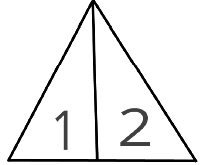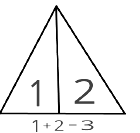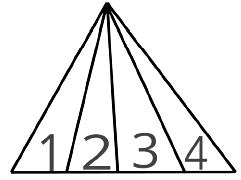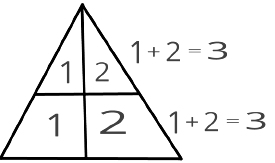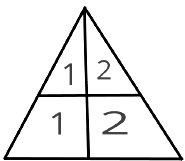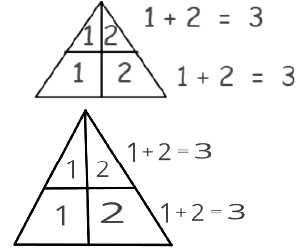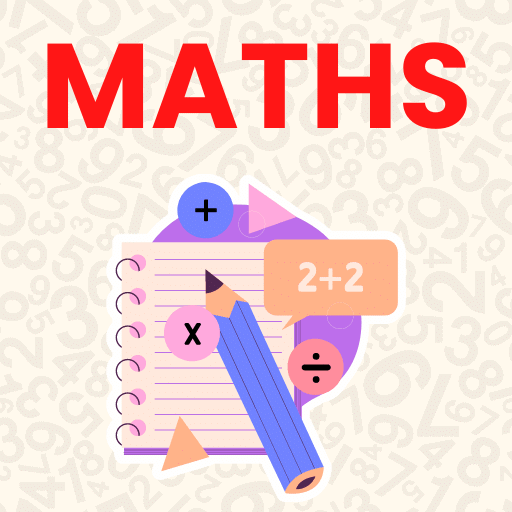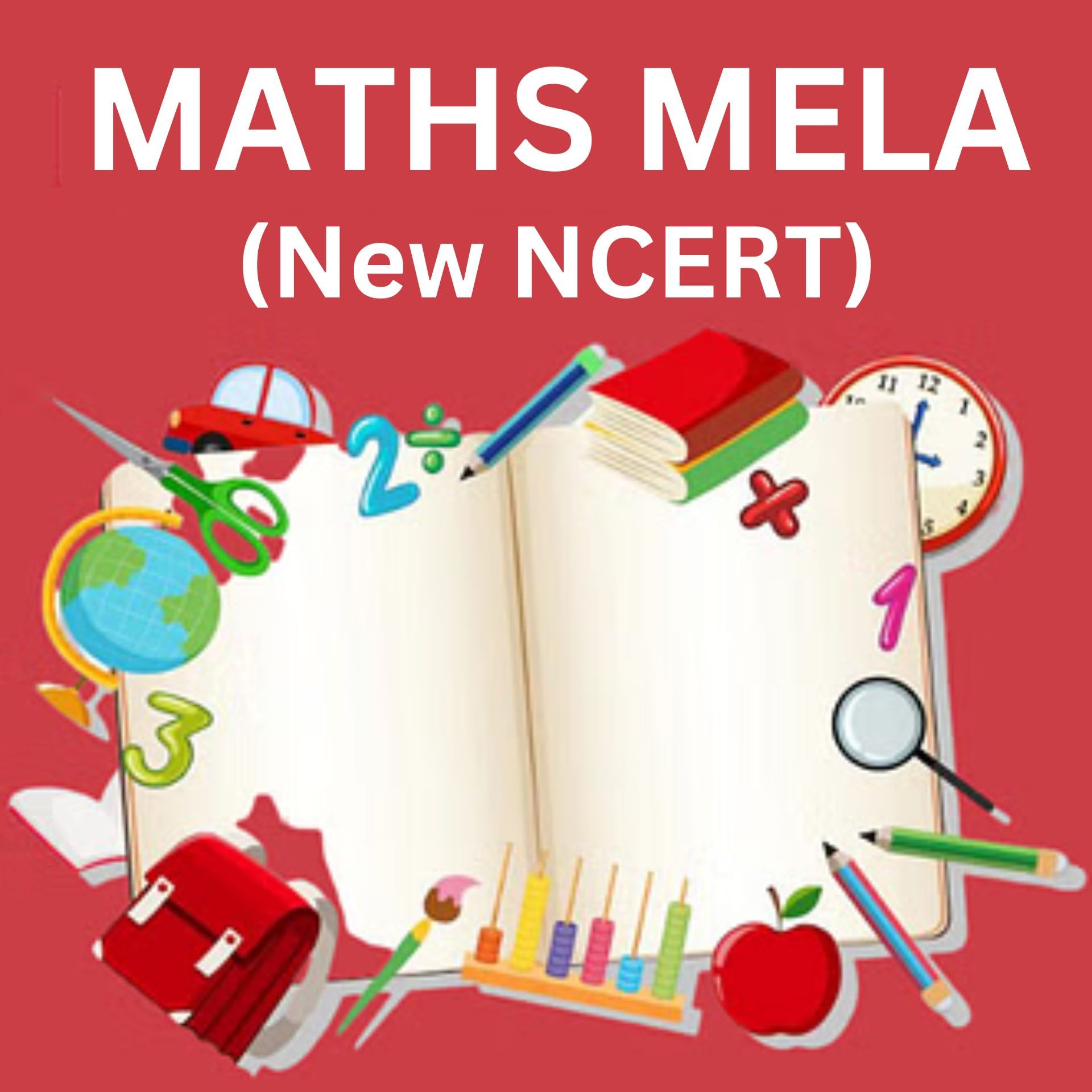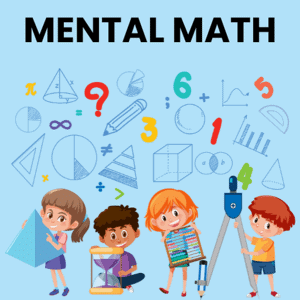Worksheet Solutions: Shapes and Designs - 2 | Mathematics for Class 3: NCERT PDF Download
Q1: Is alphabet (A) a closed shape?
Ans: No, alphabet (A) is not a closed shape.
Q2: Give 3 examples of closed shape alphabets?
Ans: 3 examples of closed shape alphabets are (O), (B), and (D).
Q3: Give 2 examples of open shape alphabets?
Ans: 2 examples of open shape alphabets are (U), and (S).
Q4: Annie wants to count the number of triangles present in the given image?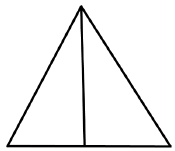 Counting Rectangles
Counting Rectangles
Ans: Here, Annie wants to count the total number of triangles present in the image. So, Annie will use the concept of counting shapes to find how many triangles are present:
- Step1: Identify the different shapes present in the image. Here, in the above image, only triangles are present.
- Step2: Add the numbers to the base of the small triangles.
 Base triangles
Base triangles - Step3: To calculate the total number of triangles, add base numbers.
 Total Triangles
Total Triangles - Total number of triangles = 3
- So, the total number of triangles present in the image is 3.
Q5: Count the number of triangles present in the given image?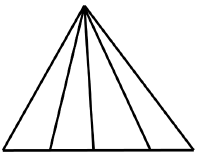 Counting Triangles
Counting Triangles
Ans: Here, we want to count the total number of triangles present in the image. So, we will use the concept of counting shapes to find how many triangles are present:
- Step 1: Identify the different shapes present in the image. Here, in the above image, only triangles are present.
- Step 2: Add the numbers to the base of the small triangles.
 Base Triangle
Base Triangle - Step 3: To calculate the total number of triangles, add base numbers.
 Addition of base numbers of triangles
Addition of base numbers of triangles- Total number of triangles = 10
- So, the total number of triangles present in the image is 10.
Q6: Sam wants to count the number of triangles present in the given image?
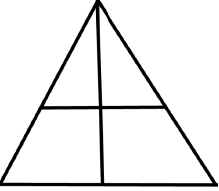 Counting TrianglesAns: Here, Sam wants to count the total number of triangles present in the image. So, Sam will use the concept of counting shapes to find how many triangles are present:
Counting TrianglesAns: Here, Sam wants to count the total number of triangles present in the image. So, Sam will use the concept of counting shapes to find how many triangles are present:
- Step 1: Identify the different shapes present in the image. Here, in the above image, only triangles are present.
- Step 2: Add the numbers to the base of the small triangles. Here, we have 2 small triangles in the first layer and 2 small triangles in the second layer.
 Base Triangles
Base Triangles - Step 3: To calculate the total number of triangles, add base numbers present on each layer.
 Addition of base triangles
Addition of base triangles- Number of triangles in the first layer = 3
- Number of triangles in the second layer = 3
- Total number of triangles in both layers = 3 + 3 = 6
- So, the total number of triangles present in the image is 6.
Q7: How many edges does a triangle have?
Ans: A triangle has 3 edges.
Q8: How many edges does a ball have?
Ans: A ball has zero edges.
Q9: How many corners does a square have?
Ans: A square has 4 corners.
Q10: How many corners does an oval have?
Ans: An oval has 0 corners.
|
39 videos|119 docs|55 tests
|
FAQs on Worksheet Solutions: Shapes and Designs - 2 - Mathematics for Class 3: NCERT
| 1. What are the different types of shapes and designs? |  |
| 2. How can shapes and designs be used in art and architecture? |  |
| 3. What is the importance of symmetry in shapes and designs? |  |
| 4. How can shapes and designs be used to enhance communication and convey meaning? |  |
| 5. How can shapes and designs be used in interior design? |  |

